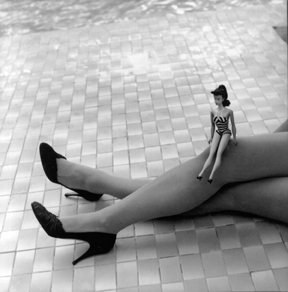by Wendy Steiner, Director, Penn Humanities Forum
Human nature, the Forum's theme and research focus for 1999-2000, is a topic that has allowed humanists to react to the discoveries of evolutionary biology and genetic research and to re-examine the recent emphasis of humanistic inquiry on anti-essentialism, ideology, and difference. One claim that arose out of this discussion came from Phillip Chase, a Penn anthropologist, who argues that human beings and animals may share the use of tools, but that only human beings expend energy on designing and decorating those tools beyond merely functional requirements. In other words, a crucial aspect of human nature is style.
The topic of style cuts across every discipline in the humanities, allowing us to pose a series of questions with special reference to the University of Pennsylvania and Philadelphia:
- What does "style" mean when applied in a folk context versus a high-art context? Penn has a rich tradition of folkloric research, and Philadelphia has many specialists in folk and outsider art in its museums and galleries. Moreover, the Penn Humanities Forum is affiliated with Penn's Folklore Center.
- Do communities create style nowadays, or does style create communities, or both? Have the media and technology changed this interaction?
- Is the pursuit of happiness identical to the pursuit of style in the post-Enlightenment period? Always? Never?
- Is style intrinsically opposed to function? If so, does it automatically imply freedom, arbitrariness, caprice? What about constraints on style? In other words, do we necessarily conceive of style as independence from biological imperatives but conformity to social imperatives?
- Why did stylistics become passé in the academic criticism of all the arts-or did it?
- Why is the notion of style so closely associated with women, when nothing done by either sex is bereft of style?
- Does the commercial underpinning of the fashion industry still force us to disqualify fashion as art? Have style and economics ever been distinct? If so, what has been the price of this purity?
- What is the relation between disciplinary style (the inclusion or exclusion of narrative in history; the tolerance or intolerance for jargon in philosophy or literary criticism or musicology) and the potential for interdisciplinarity or popularization?
- Is it possible to think of style apart from periodization in the arts, and if not, how can it escape the distortions of period concepts?
- How accurate is style as a heuristic device in the various disciplines? Is the evidence of style accurate? In real tests, would experts identify objects correctly by using stylistic criteria? Would they identify the stylistic criteria themselves? (Is this a meaningful set of questions?)
- What factors make up individual style in non-artistic symbolic activities: everyday speech, movement, self-presentation, handwriting, and so forth, and how can we distinguish the realm of style from rule governedness in these cases?



